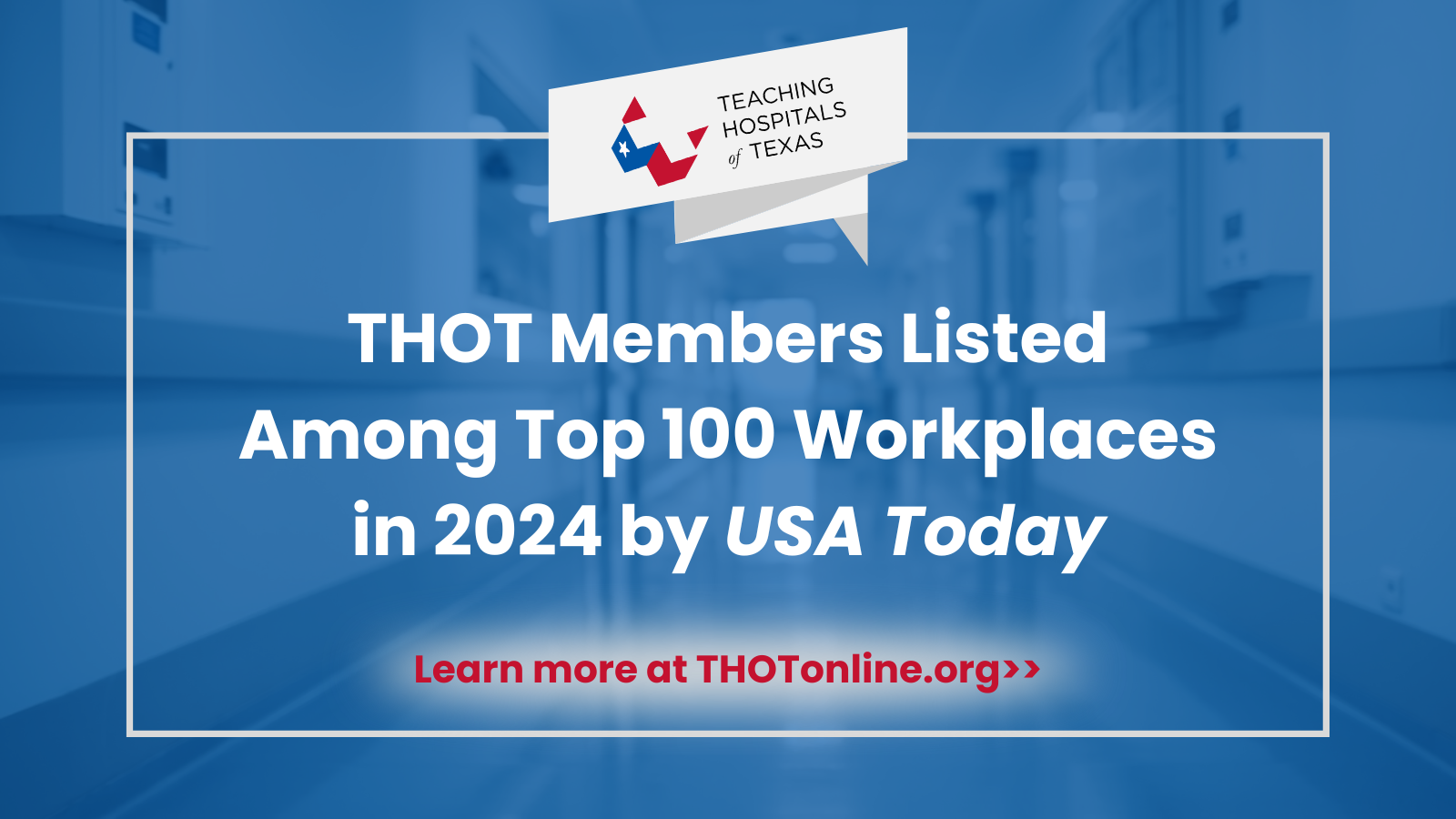Jackie Brock, DNP, RN, NEA-BC, TCRN, chief nurse executive and executive vice president for Harris Health System, testified today before the Texas House of Representatives Committee on Public Health, chaired by Rep. Stephanie Klick, RN. Brock’s testimony focused on the importance and value of clinical sites for the education and training of both nursing students and nursing graduates as they transition from school to bedside nursing.
As teaching hospitals, many of THOT’s members serve as clinical training sites for nursing students and partner with schools of nursing to provide the hands-on experiences essential to a well-rounded nurse education, outside of the classroom. However, unlike public funding for graduate medical education for physician residencies, nursing residency and transitional clinical training have received limited or no ongoing, dedicated federal or state funding.
Current nurse workforce funding and strategies to address the state’s serious shortage of nurses largely focus on the educational component to grow the pipeline of nursing students. These strategies, although necessary, are not sufficient to train a competent nurse workforce. Equally necessary and critical, but as yet financially unsupported, is clinical site training. Indeed, nurse faculty and others continue to identify lack of access to clinical training as the primary obstacle to expanding class size in Texas’ nursing programs.
THOT supports one-time funding, such as hospital-based grant programs to develop, implement, and test innovative approaches to increasing clinical capacity, clinical training, and nurse retention, and ongoing funding for critical clinical training. THOT’s members have implemented innovative approaches to train, retain and support their nurse workforces including “grow your own” (i.e. supporting non-clinical employees interested in a clinical career) and other innovations to encourage and support clinical careers that right size Texas’ health care workforce to meet the needs of a growing population.
The Committee on Public Health is charged in the legislative interim with examining existing resources and available opportunities to strengthen the state’s nursing and other health professional workforce, including rural physicians and nurses.




